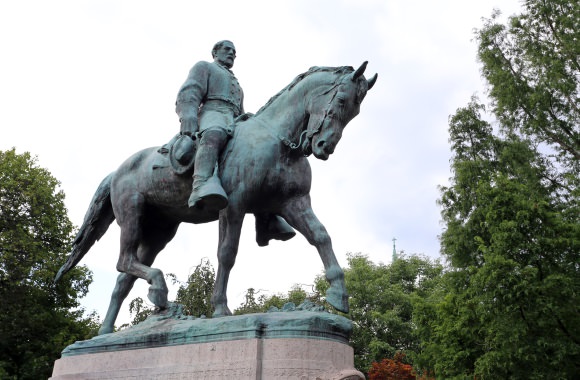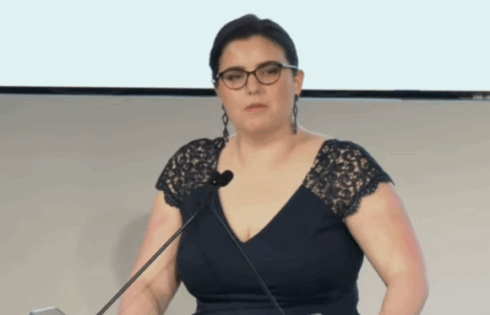
Because journalists are ‘bugging people’
When I was a young tech policy journalist in Washington many years ago, I met an up-and-coming congressman who cared about freedom of the press – even for those stupid, pajama-clad bloggers. His name was Mike Pence.
He was sponsoring legislation that would protect people who practiced journalism – but weren’t connected to a print, radio or TV outlet – from compelled disclosure of their sources or unpublished reporting, on the same grounds as their mainstream counterparts.
Sounds unremarkable now, but this was hugely controversial with law enforcement, which feared anyone would claim to be a journalist to hide information relevant to an investigation. They knew mainstream reporters – and how to control them.
Bloggers were a different breed. It’s not a perfect analogy, but as a group, I’d say they had a reputation along the lines of gay porn stars (and you know law enforcement’s history with gays).
I was taken back to that open hostility to nontraditional journalists as I read about a community college in New York City that brutalized a no-name photographer whose only crime was taking photos. In public. On a public campus.
The Columbia Journalism Review has a dispiriting feature on how colleges, seeking to control every aspect of their image, are increasingly micromanaging outside and student journalists who are simply trying to do their jobs – and ordering students not to talk to them..
Two schools within the City University of New York have become the new poster children for threatening journalists, replacing Melissa “Muscle” Click at the University of Missouri two years ago.
CUNY graduate student Max Zahn reports:
On an assignment in August, freelance journalist Jeff Bachner had no trouble driving onto Kingsborough Community College in Brooklyn. He parked his car and started taking photos.
Soon after, a college security officer said he was trespassing and put him in handcuffs. …
The officer then re-cuffed him to a railing over his head, and ignored his pleas to loosen the handcuffs, Bachner said in the statement, the contents of which were confirmed by [New York Press Photographers Association] Vice President Todd Maisel. When Bachner began to gasp for breath and complain of numb fingers, officers called a medic. They eventually released Bachner without charge.
Four days after the detention of Bachner, on August 16, campus security at Bronx Community College handcuffed freelance journalist J.B. Nicholas and issued him a summons for trespassing as he interviewed students about Confederate statues on campus. The charges were later dismissed.
In October, I was escorted off the same campus, Bronx Community College, by campus police on consecutive days after trying to speak to students for a follow-up story about the statues.
We cover Confederate statues too. Occasionally our student writers express concern they’ll get in trouble with their own administrators for reporting. They aren’t necessarily wrong.
CUNY passed the buck on this atrocious behavior, saying each college in the system designs its own “media access protocol,” but it won’t even say what those protocols are (Kingsborough and BCC won’t say).
But a BCC spokesperson who was dumb enough to respond to Zahn on the record made plain that the school considers people asking questions in public to be threats. What a surprise, a public college with utter contempt for the First Amendment!
“We don’t want reporters on campus bugging people as they go about their day,” she said. “If we have any media on campus, they call ahead and we set it up. They don’t just have free reign.”
No, that’s not how media work on a public campus. You don’t get to selectively enforce your time, place and manner restrictions against journalists “unless you’re also prepared to eject someone walking their dog or having a picnic lunch,” as Frank LoMonte, formerly of the Student Press Law Center, told Zahn.
It was an incredibly stupid idea when Yale suggested it would block “filming without prior permission” in the wake of the Shrieking Girl humiliation, but CUNY and its components have a legal obligation. They can and should be sued when they nakedly threaten people they suspect might make them look bad.
If you want to hear about the University of Colorado putting up a “wanted poster” for its student journalists, New Hampshire’s Keene State ordering student athletes to avoid the media, and the resolution of the Bronx situation, read Zahn’s story.
MORE: Assault, Title IX claims filed against Click and Mizzou administrator
IMAGES: wellphoto/Shutterstock, Katherine Welles/Shutterstock
Like The College Fix on Facebook / Follow us on Twitter








Please join the conversation about our stories on Facebook, Twitter, Instagram, Reddit, MeWe, Rumble, Gab, Minds and Gettr.